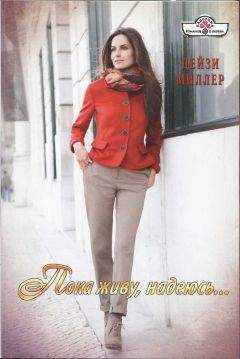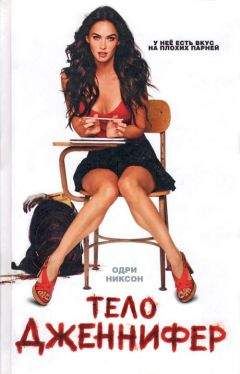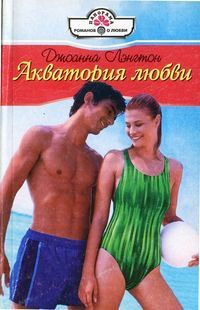Ричард Овери - Сталин и Гитлер
14. Duranty, Stalin and Co, p. 38.
15. On his medical history N. Romano-Petrova Stalin’s Doctor: Stalin’s Nurse: A Memoir (Princeton, NJ, 1984), pp. 5–6.
16. On Stalin’s many revolutionary nicknames see The Life of Stalin: a Symposium (London, 1930), p. 3; on Siberia A. V. Baikaloff I Knew Stalin (London, 1940), pp. 27–9.
17. See for example Joseph Stalin: a Short Biography (Moscow, 1949), p. 55, ‘Stalin was Lenin’s closest associate. He had direct charge of all the preparations for the insurrection [in 1917]’ or p. 76, ‘It was Stalin who directly inspired and organized the major victories of the Red Army [in the civil war]’. The same portrait appears in Short History of the Communist Party of the Soviet Union (Moscow, 1942) (so-called ‘Short Course’) pp. 206–7.
18. Joseph Stalin Works, vol. iii, p. 67, ‘What did we expect from the conference?’ in Soldatskaya Pravda, 6 May 1917.
19. Stalin, Works, vol. iii, p. 408, Speech at a meeting of the Central Committee, 16 October 1917.
20. R. Tucker, Stalin as Revolutionary 1879–1929 (New York, 1973), pp. 179–82.
21. Cited in Tucker, Stalin, pp. 178–9; Trotsky’s remark in D. Volkogonov Trotsky: The eternal revolutionary (London, 1996), p. 322.
22. Baikaloff, I Knew Stalin, p. 29.
23. Tucker, Stalin, p. 181; S. Graham Stalin: an Impartial Study of the Life and Work of Joseph Stalin (London, 1931), p. 39.
24. M. Voslensky Nomenklatura: Anatomy of the Soviet Ruling Class (London, 1984), p. 47.
25. Duranty, Stalin and Co, p. 30; E. Lyons Stalin: Czar of all the Russians (London, 1940), pp. 176–7; Baikaloff, I Knew Stalin, p. 28, ‘He spoke haltingly, with a strong Georgian accent; his speech was dull and dry’; Graham, Stalin, pp. 117–19.
26. Volkogonov, Stalin: Triumph and Tragedy, pp. 225–9.
27. Tucker, Stalin, p. 175. ‘There is a dogmatic Marxism,’ Stalin said in a debate in August 1917, ‘and a creative Marxism. I stand on the ground of the latter.’
28. The story of the cutlery in A. H. Birse Memoirs of an Interpreter (London, 1967), p. 160.
29. Tucker, Stalin, p. 212.
30. Baikaloff, I Knew Stalin, p. 85, repeating a story told by Noah Dzhordania.
31. Baikaloff, I Knew Stalin, p. 84.
32. Lyons, Stalin: Czar, p. 175; see too his account in E. Lyons Assignment in Utopia (London, 1937), pp. 381–9: ‘his swarthy face’ had, Lyons recalled, ‘a friendly, almost benignant look’.
33. Graham, Stalin, p. 119: ‘Calm and immobile sits Stalin,’ wrote one observer, ‘with the stone face of a prehistoric dragon, in which alone the eyes are living.’
34. Graham, Stalin, p. 79; Tucker, Stalin, pp. 21 off.
35. S. Sebag Montefi ore Stalin: the Court of the Red Tsar (London, 2003), pp. 1–18 on the suicide of his second wife; A. Reiss (ed.) Molotov Remembers: Inside Kremlin Politics. Conversations with Felix Chuev (Chicago, 1993), pp. 177–8 on Stalin’s drinking habits: ‘Stalin didn’t drink much, although he pushed others to do it. Apparently he considered it a useful way to test people.’
36. Interview with Dmitri Volkogonov, episode 1, Russia’s War documentary, 1997.
37. Tucker, Stalin, p. 209.
38. Graham, Stalin, p. 93.
39. A. Amba I Was Stalin’s Bodyguard (London, 1952) p. 69.
40. E. W. Tennant True Account (London, 1957), pp. 182–3.
41. On his liking for the Austrian Jewish composer before 1914 see B. Hamann Hitler’s Vienna: a Dictator’s Apprenticeship (London, 1999), pp. 64–6, 349.
42. Hamman, Hitler’s Vienna, pp. 398–402; W. Maser (ed.) Hitler’s Letters and Notes (New York, 1977), pp. 27–31.
43. Maser, Letters and Notes, p. 45, letter from Hitler to Anna Popp, 20 October 1914.
44. Maser, Letters and Notes, pp. 52–5, letter from Hitler to Joseph Popp, 1 November 1914.
45. Hitler, Mein Kampf, p. 150.
46. Hitler, Mein Kampf, pp. 186–7. See an analysis of Hitler’s psychological state in F. Redlich Hitler: Diagnosis of a Destructive
Prophet (New York, 1999), pp. 286–317.
47. A. Joachimsthaler Korrektur einer Biographie: Adolf Hitler 1908–1920 (Munich, 1989), pp. 250–53.
48. F. Reck-Malleczewen Diary of a Man in Despair (London, 1995), pp. 22–3.
49. H. Rauschning Hitler Speaks (London, 1939), p. 68; see too the description by one of his interpreters, Eugen Dollmann, in Public Record Offi ce, London, WO 218/4475 Interrogation Report on SS Oberfüehrer Dollmann [n.d. Aug. 1945], pp. 1–2.
50. H. Hoffmann Hitler Was My Friend (London, 1955), p. 196.
51. Junge, Until the Final Hour, p. 44.
52. Hitler, Mein Kampf, p. 98.
53. IWM Speer Collection, Box S366, Evaluation Report 241, First Prelimnary Report on Hjalmar Schacht, 31 July 1945, p. 1.
54. A. Miskolczy Hitler’s Library (Budapest, 2003), ch. 1.
55. F.-L. Kroll Utopie als Ideologie: Geschichtsdenken und politisches Handeln im Dritten Reich (Paderborn, 1998), pp. 32–4, 56–64; E. Syring Hitler: seine politische Utopie (Frankfurt am Main, 1994), pp. 22–9, 51–93; J. Hermand
Der alte Traum vom neuen Reich: völkische Utopien und Nationalsozialismus (Frankfurt am Main, 1988), pp. 147–56, 215ff.
56. See for example P. Pulzer The Rise of Political Anti-Semitism in Germany and Austria (London, 1988), pp. 121ff., 195–207. In May 1918 the small Austrian ‘Workers’ Party’ changed its name to German National Socialist Workers’ Party. ‘National socialist’ ideas were central to much Austrian radical nationalism before 1914. See too, K. D. Bracher The German Dictatorship: the Origins, Structure and Consequences of National Socialism (London, 1971), pp. 72–9.
57. Kroll, Utopie als Ideologie, pp. 49–56; Syring, Hitler, pp. 40–4; P. Longerich The Unwritten Order: Hitler’s Role in the Final Solution (Stroud, 2001), pp. 15–26; K.-U. Merz Das Schreckbild: Deutschland und der Bolschewismus 1917 bis 1921 (Frankfurt am Main, 1995), pp. 457–71.
58. Rauschning, Hitler Speaks, pp. 208–9; Hitler, Mein Kampf, pp. 96–7.
59. Rauschning, Hitler Speaks, p. 211.
60. Hitler, Mein Kampf, p. 269.
61. On Hitler’s medical history Redlich, Hitler: Diagnosis, pp. 223–54.
62. G. Ward Price I Know These Dictators (London, 1937), pp. 9–10; PRO, WO 218/4775, Dollmann interrogation, p. 1.
63. Ward Price, I Know These Dictators, pp. 16–17; see too the account in K. Krause Zehn Jahre Kammerdiener bei Hitler (Hamburg,
1990), pp. 14–21. On champagne over Pearl Harbor see Liddell Hart Archive, King’s College, Hechler Collection, fi le 1, ‘The enemy side of the hill’, p. 93.
64. Krause, Zehn Jahre, pp. 31–2; Junge, Until the Final Hour, pp. 67–70 on Hitler’s eating habits and hostility to meat-eaters.
65. Junge, Until the Final Hour, p. 114.
66. Miskolczy, Hitler’s Library, pp. 3–5.
67. E. H. Schwaab Hitler’s Mind: a Plunge into Madness (New York, 1992), p. 29.
68. Schwaab, Hitler’s Mind, p. 43.
69. F. Genoud (ed.) The Testament of Adolf Hitler: the Hitler-Bormann Documents (London, 1961), p. 95, entry for 25 February 1945.
70. Allen (ed.), Infancy of Nazism, p. 165.
71. Tucker, Stalin, pp. 309–10 on the collective leadership principle; p. 319 for Bukharin quotation.
72. Graham, Stalin, p. 121.
73. I. Zbarsky and S. Hutchinson Lenin’s Embalmers (London, 1998), pp. 11–12; N. Tumarkin Lenin Lives! The Lenin Cult in Soviet Russia (Cambridge, Mass., 1997), pp. 174–5.
74. J. Stalin Problems of Leninism (Moscow, 1947), pp. 13–93, ‘The Foundations of Leninism’; Tucker, Stalin, pp. 316–24; R. W. Daniels The Conscience of the Revolution: Communist Opposition in Soviet Russia (Cambridge, Mass., 1960), pp. 236–8.
75. Stalin, Works, vol. vi, p. 48, ‘On the death of Lenin’, speech of 26 January 1924 to Second All-Union Congress of Soviets.
76. Stalin, Works, vol. vi, pp. 189–90, ‘Foundations of Leninism’, Pravda, May 1924.
77. Stalin, Works, vol. vi, p. 47.
78. Stalin, Works, vol. vi, pp. 191–2.
79. Graham, Stalin, pp. 78–9.
80. Volkogonov, Stalin: Triumph and Tragedy, pp. 104–5. On the contest with Trotsky see too R. W. Daniels Trotsky, Stalin and Socialism (Boulder, Colo., 1991); Y. Felshtinsky ‘Lenin, Trotsky, Stalin and the Left Opposition in the USSR, 1918–1928’, Cahiers du Monde russe et soviétique, 31 (1990), pp. 570–73.
81. Stalin, Works, vol. vi, p. 373, Trotskyism or Leninism?’ speech 19 November 1924; Tucker, Stalin, pp. 340–44.
82. Tucker, Stalin, pp. 353–4.
83. Volkogonov, Stalin: Triumph and Tragedy, p. 134.
84. Volkogonov, Stalin: Triumph and Tragedy’, p. 113.
85. Volkogonov, Stalin: Triumph and Tragedy, p. 135.
86. L. Trotsky My Life: an Attempt at an Autobiography (London, 1970), p. 554.
87. Stalin, On the Opposition, p. 865, speech at plenum of the Central Committee, 23 October 1927.
88. Stalin, On the Opposition, pp. 867, 883.
89. Volkogonov, Stalin: Triumph and Tragedy, pp. 175–8; Zbarsky and Hutchinson, Lenin’s Embalmers, pp. 61–2 for the description of Bukharin. See too S. Cohen Bukharin and the Bolshevik Revolution: A Political Biography 1888–1938 (New York, 1980) for the standard account.
90. On the emergence of the ‘right opposition’ see C. Merridale, ‘The Reluctant Opposition: the Right “Deviation” in Moscow 1928’, Soviet Studies, 41 (1989), pp. 382–400.
91. Volkogonov, Stalin: Triumph and Tragedy, p. 177.
92. Merridale, ‘Reluctant Opposition’, pp. 384–8; see too idem, Moscow Politics and the Rise of Stalin: the Communist Party in the Capital 1925–32 (London, 1990) esp. chs 2–3; R. Medvedev Nikolai Bukharin: The Last Years (New York, 1980), pp. 17–18.
93. A. Avtorkhanov Stalin and the Soviet Communist Party: a Study in the Technology of Power (Munich, 1959) pp. 117–18.
94. Volkogonov, Stalin: Triumph and Tragedy, p. 186; Avtorkhanov, Stalin and the Communist Party, pp. 124–5, 152–3. For a more critical assessment of the claim for a right ‘deviation’ see M. David-Fox ‘Memory, Archives, Politics. The Rise of Stalin in Avtorkhanov’s Technology of Power Slavic Review, 54 (1995), pp. 988–1003. On Molotov’s elevation, see D. Watson Molotov and Soviet Government: Sovnarkom, 1930–41 (London, 1996), pp. 27–44; R. G. Suny ‘Stalin and his Stalinism: power and authority in the Soviet Union, 1930–53’ in I. Kershaw and M. Lewin (eds) Stalinism and Nazism: Dictatorships in Comparison (Cambridge, 1997), pp. 33–5.
95. Avtorkhanov, Stalin and the Communist Party, pp. 156–7; J. Brooks Thank You, Comrade Stalin! Soviet Public Culture from Revolution to Cold War (Princeton, NJ, 2000), pp. 59–61; J. Gooding Rulers and Subjects: Government and People in Russia 1801–1991 (London, 1996), pp. 199–200.
96. D. Orlow The History of the Nazi Party: Volume I, 1919–1933 (Newton Abbot, 1973), p. 49.
97. Orlow, History of the Nazi Party: I, pp. 52–3.
98. Hess, Rudolf Hess: Briefe, p. 363, letter from Hess to Klara and Fritz Hess, 2 March 1925. Speech in C. Vollnhals (ed.) Hitler: Reden, Schriften und Anordnungen Februar 1925 bis Januar 1933 (12 vols, Munich, 1992), i, p. 14–28.




